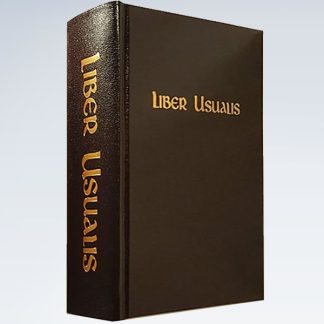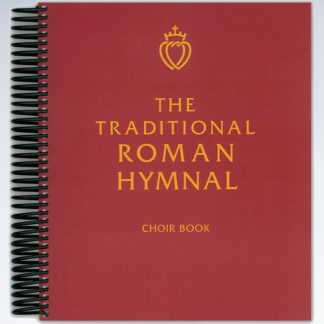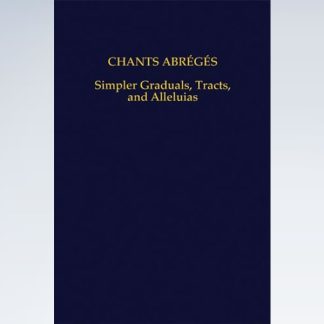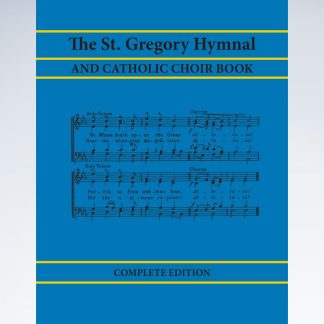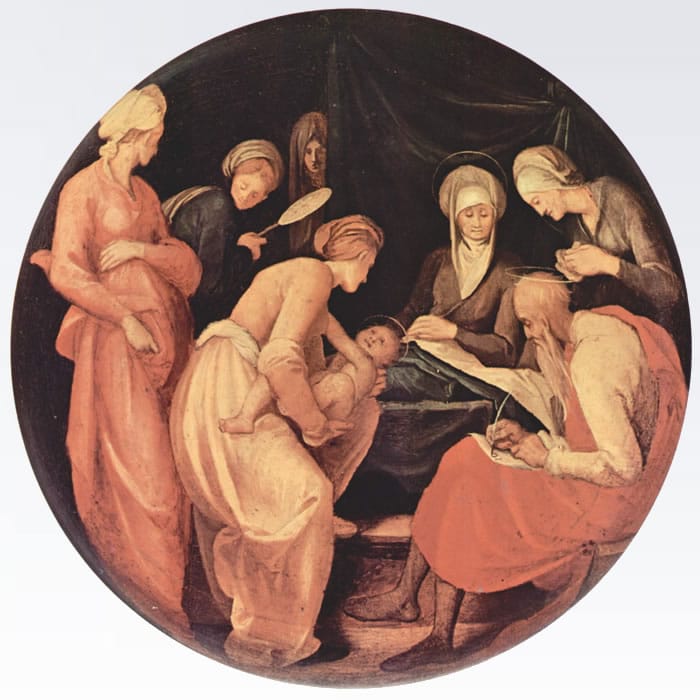

“O for your spirit, holy John, to chasten
Lips sin-polluted, fettered tongues to loosen;
So by your children might your deeds of wonder
Meetly be chanted.”
Paolo Diacono (Paul the Deacon) (ca. 720 – ca. 799) a monk of Monte Cassino and a friend of Charlemagne, had composed, in honour of St. John the Baptist, the hymn: “Ut queant laxis.” In the thirteenth century the Benedictine monk Guy of Arezzo noticed that the notes sung on the first syllabes formed the sequence of the first six degrees of the scale. He named each degree by the corresponding syllable: “Ut, re, mi, fa, sol, la, si” and thereby greatly facilitated the study of musical intervals.
Ut queant laxis resonare fibris, Mira gestorum famuli tuorum, Solvi polluti labii reatum, Sancte Ioannes (Ut, Re, Mi, Fa, Sol, La)
The hymn traditionally sung on the eve of the Solemnity of the Birth of St. John the Baptist, June 24. Below are all the words to the entire hymn in Latin and English translation from the Hymner (Plainsong & Medieval Music Society, 1905):
“Ut queant laxis” Lyrics
| Ut queant laxis resonare fibris Mira gestorum famuli tuorum, Solve polluti labii reatum, Sancte Iohannes! | O for thy Spirit, Holy John, to chasten, Lips sin-polluted, fettered tongues to loosen, So by thy children might thy deeds of wonder Meetly be chaunted |
| Nuntius celso veniens Olympo te patri magnum fore nasciturum, nomen et vitae seriem gerendae ordine promit. | Lo ! a swift herald, from the skies descending, Bears to thy father promise of thy greatness ; How he shall name thee, what thy future story, Duly revealing. |
| Ille promissi dubius superni perdidit promptae modulos loquelae; sed reformasti genitus peremptae organa vocis. | Scarcely believing message so transcendent, Him for a season power of speech forsaketh, Till, at thy wondrous birth, again returneth Voice to the voiceless. |
| Ventris abstruso positus cubili senseras regem thalamo manentem, hinc parens nati meritis uterque abdita pandit. | Thou, in thy mother’s womb all darkly cradled, Knewest thy Monarch, biding in his chamber, Whence the two parents, through their children’s merits, Mysteries utter’d. |
| Antra deserti teneris sub annis civium turmas fugiens, petisti, ne levi saltim maculare vitam famine posses. | Thou, in thy childhood, to the desert caverns Fleddest for refuge from the cities’ turmoil, Where the world’s slander might not dim thy lustre, Lonely abiding. |
| Praebuit hirtum tegimen camelus, artubus sacris strofium bidentis, cui latex haustum, sociata pastum mella locustis. | Camel’s hair raiment clothed thy saintly members ; Leathern the girdle which thy loins encircled ; Locusts and honey, with the fountain-water, Daily sustain’d thee. |
| Caeteri tantum cecinere vatum corde praesago iubar adfuturum; tu quidem mundi scelus auferentem indice prodis. | Oft in past ages, seers with hearts expectant, Sang the far-distant advent of the Day-Star, Thine was the glory, as the world’s Redeemer, First to proclaim him. |
| Non fuit vasti spatium per orbis sanctior quisquam genitus Iohanne, qui nefas saecli meruit lavantem tingere limphis. | Far as the wide world reacheth, born of women, Holier was there none than John the Baptist; Meetly in water laving him who cleanseth Man from pollution. |
| O nimis felix meritique celsi nesciens labem nivei pudoris, prepotens martyr heremique cultor, maxime vatum! | O More than blessed, merit high attaining, Pure as the snow-drift, innocent of evil, Child of the desert, mightiest of martyrs, Greatest of prophets. |
| Serta ter denis alios coronant aucta crementis, duplicata quosdam; trina centeno cumulata fructu te, sacer, ornant. | Thirty-fold increase some with glory crowneth ; Sixty-fold fruitage prize for others winneth; Hundred-fold measure, thrice repeated, decks thee, Blest one, for guerdon. |
| Nunc potens nostri meritis opimis pectoris duros lapides repelle asperum planans iter, et reflexos dirige calles, | O may the virtue of thine intercession, All stony hardness from our hearts expelling, Smooth the rough places, and the crooked straighten Here in the desert. |
| ut pius mundi sator et redemptor mentibus pulsa luvione puris rite dignetur veniens sacratos ponere gressus. | Thus may our gracious Maker and Redeemer, Seeking a station for his hallow’d footsteps, Find, when he cometh, temples undefiled, Meet to receive him. |
| Laudibus cives celebrant superni te, deus simplex pariterque trine, supplices ac nos veniam precamur: parce redemptis! Amen. | Now as the Angels celebrate thy praises, Godhead essential, Trinity co-equal ; Spare thy redeem’d ones, as they bow before thee, Pardon imploring. Amen. |
The Feasts of St. John the Baptist
June 23, The Vigil of the Nativity of St. John the Baptist, Purple;
June 24, The Nativity of St. John the Baptist, Double of the Frist Class, White;
August 29, The Beheading [Decollation] of St. John the Baptist, Double Major, Red.

-
Liber Usualis (№ 801 With Introduction and Rubrics in English)US$ 100.00
-
Traditional Roman Hymnal – Choir BookUS$ 62.00
-
Chants of the Church by the Monks of SolesmesUS$ 25.00
-
Chants Abrégés: Simpler Graduals, Tracts, and AlleluiasUS$ 24.00
-
Gregorian Hymns CD by the Daughters of MaryUS$ 19.00
-
St. Gregory Hymnal and Catholic Choir Book – Complete EditionUS$ 33.00
VIRGÓ SACRÁTA is a Christian mission-driven online resource and shop inspired from the beauty of Catholic faith, tradition, and arts. Our mission is to “Restore All Things to Christ!”, in continuing the legacy of Pope St. Pius X under the patronage of the Blessed Virgin Mary. “Who is she that cometh forth as the morning rising, fair as the moon, bright as the sun, terrible as an army set in battle array?” O Mary, conceived without sin, pray for us who have recourse to Thee.

